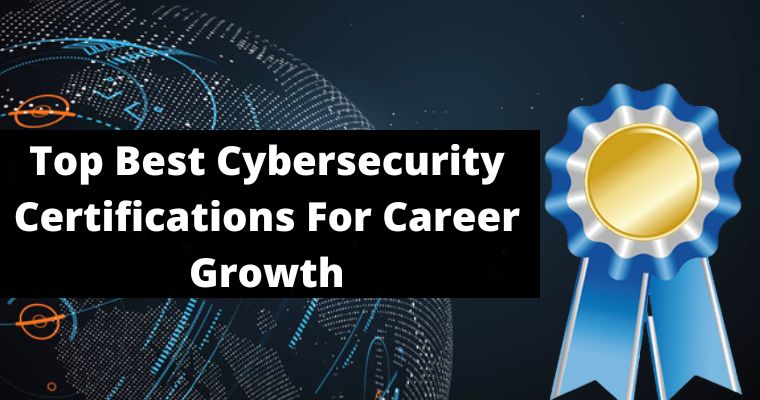Cybersecurity has always notably played a significant role because the government, military, corporate, financial, and medical sectors are known to accumulate massive data on computers.
It’s possible that significant portions of that data contain sensitive information, whether it’s intellectual property, financial data, personal data, or different types of information susceptible to exposure in an unauthorized manner.
Cybersecurity refers to the discipline that protects sensitive data transmitted across networks and to other devices in business transactions.
Companies share sensitive data over networks and to other devices as part of conducting business.
With the advent of cyber attacks increasing in volume and sophistication, companies and organizations, especially those tasked with protecting national security, health, or financial information, need to take steps to safeguard sensitive business information and personnel information.
Table of Contents
Reason for choosing University of Washington, Bothell?
At the University of Washington Bothell, students receive advanced training in computer science techniques and cutting-edge cybersecurity technologies and practices to become cybersecurity professionals, which provides them with a competitive edge in the market.
Graduates are prepared for the modern security workforce, securing cyber systems and managing risk with training and experience in ethical penetration testing, wireless security, network security, cryptography,,and the cybersecurity of emerging technologies.
The culminating project or thesis will combine hard and soft skills and theoretical research.
The program at the University of Washington is tailored to accommodate the needs of working professionals so that students can complete the degree requirements at their own pace with the option of full- or part-time enrollment.
Two classes per week are offered for the M.S. in Cybersecurity Engineering program.
Program Overview:
- In addition to the core courses in information assurance and cybersecurity, network and system security, and secure software development, the University of Washington, Bothell offers two certificate programs related to information technology.
- Cybersecurity courses prepare future engineers with a solid computer science foundation and equip them with the skills they need to design and deploy secure network systems, model threats, develop and implement policies, follow ethical behavior, and manage risk.
- Students can delve into cybersecurity and software engineering topics through a variety of electives (minimum of ten credits cybersecurity electives about human factors in cybersecurity, machine learning about security in emerging wireless and mobile networks, ethical penetration testing about IoT, and malware reverse engineering about malware and attack reverse engineering).
- Students interact and learn about faculty research during the faculty research seminar in preparation for the culminating thesis or project.
- To understand the full scope of their writing capabilities, they take a writing assessment in their first quarter to determine their degree-level competency in technical and scientific writing and determine if they need to enroll in writing courses (0-3 credits).
Faculty Overview
Faculty at University of Washington with backgrounds in software engineering, computer science, and closely related fields. Faculty members have been selected from the nation’s best universities based on their reputations for teaching excellence, academic distinction, and cutting-edge research.
In addition, CSS faculty members are closely involved with the leading high-tech companies in Puget Sound. Most importantly, professors encourage students to work on research projects with them.
Admission Requirements:
- Applicants to the M.S. in Cybersecurity Engineering program must possess:
- The applicant should also hold a bachelor’s degree in computer science. However, it can also be related to any closely related field in software engineering.
- Proficiency in English
- Overall GPA 3.0 GPA or better in the last two years of study. Alternative: An applicant may qualify if they hold a bachelor’s degree in another field AND complete the Graduate Certificate in Software Development. Please refer to Applying for Admissions for information on submitting your application.
- Graduate School admission requirements are listed on this website: Understanding the Application Process, which details the requirements for Graduate School admission.
Please Note: Questions about admission should be directed to cssgrad@uw.edu.
Fees Structure:
Cybersecurity Engineering is a credit-based, self-sustaining master’s program (matriculated and non-matriculated). Citizenship status and residency in Washington State do not affect tuition.
University of Washington Professional & Continuing Education, a division of U.W. Continuum College, handles payments.
There are 46-49 credits to be completed as part of the program curriculum. The total cost of each quarter varies based on the number of credits each student enrolls in.
A full-time student usually enrolls in 10 credits per quarter and can complete the program between 1.5 and 2 years. A part-time student generally enrolls in 5 credits per quarter and can complete the program between 3-4 years.
Conclusion
A larger pool of high-skilled workers in cybersecurity jobs would help the nation better address its cybersecurity challenges.
Each and every organization should be able to understand the various risks associated with cyber security threats. Thus, it should hire the most appropriate personnel for the same.



